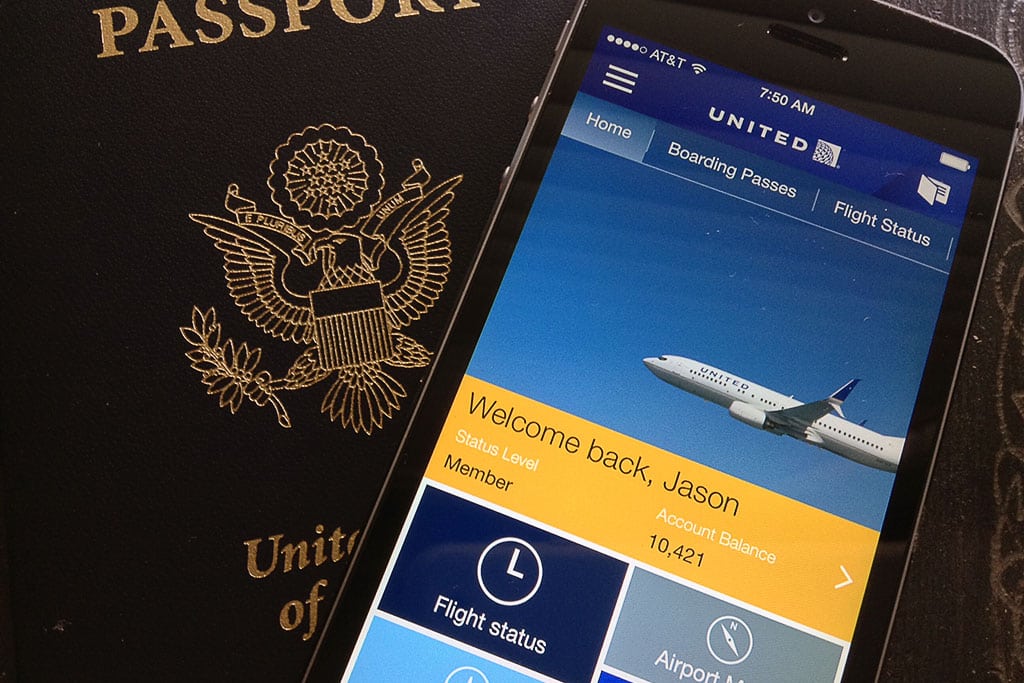Skift Take
The survey brings home the point that travelers' smartphone behaviors vary widely from country to country. India's MakeMyTrip tries to keep users on smartphones, and Expedia makes it easier for users to transition from device to device. The differences are dramatic.
If you are traveling and cringe when a fellow passenger activates the speaker on her smartphone when making a call, fear not because you are not alone.
An Expedia/Egencia global survey on mobile usage found that this was the most offensive smartphone etiquette violation among a list of perceived technology sins.
The survey contains fun and interesting facts on the most-annoying mobile-technology transgressions, insightful tidbits on business travelers’ trip-planning habits on mobile, and information about the divergent ways people use smartphones around the world.
On the etiquette-buster front, the 2014 Expedia/Egencia Mobile Index, which was commissioned by Expedia and conducted by research and consulting firm Northstar, found that making calls using speakerphones was the most offensive behavior (53%), followed by playing music/games/videos without headphones (47%), and taking photos/videos of strangers (42%).
Those sometimes-bothersome behaviors were followed by making calls while in restaurants (36%); video calls/Face Time/Skype (27%); loud mobile device alerts (26%); messaging/emailing at seated performance/activity (24%), and photographing food during meals (18%).
The online survey, which queried 8,856 adults in 25 countries across North and South America, Europe and Asia-Pacific August 25 to September 17, 2014, counted laptops as a mobile device, along with smartphones, tablets, e-readers and smartwatches. Africa wasn’t part of the survey.
Smartphones Versus Tablets
When it came to smartphones and tablets specifically, the survey found that 78% of business travelers use smartphones for travel planning and 71% used tablets.
In business travelers’ pecking order for the most frequent uses for their smartphones and tablets, managing itineraries (37% and 32%) took top honors, followed by researching destinations (35% and 32%), according to the survey.
Regarding making bookings, 28% of employed adults who own a mobile device indicated they used a smartphone or tablet for a hotel booking, the survey found.
India, Norway and France
Smartphones, of course, elicit different user behaviors from country to country.
Along those lines, 95% of respondents from India indicated that smartphones are “very important/critical” in their daily lives while that response dropped to 57% in Norway.
Survey respondents from India indicated they were most likely (68%) to purchase an international/data roaming plan when traveling while French respondents were the least likely (12%).
“For business trips, mobile devices are already a requirement for most travelers, and mobile usage trends are still increasing,” says Rob Greyber, president of Egencia, which is Expedia Inc.’s business travel unit. “This is because mobile devices and enabling-apps make corporate travel smoother and more productive. Our study makes clear how business travelers integrate mobile functionality into their trips, and helps us develop the best experience on whatever device they use.”
The Daily Newsletter
Our daily coverage of the global travel industry. Written by editors and analysts from across Skift’s brands.
Have a confidential tip for Skift? Get in touch
Photo credit: United allows passengers checking in for international flights on their smartphones to scan their passports as well. Skift
